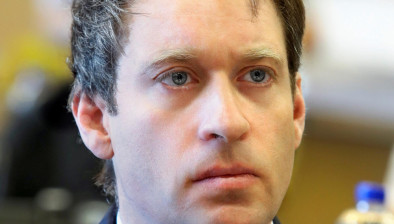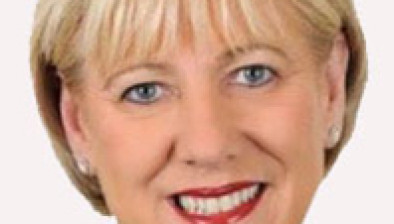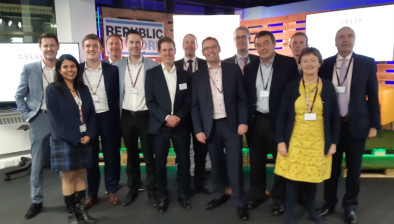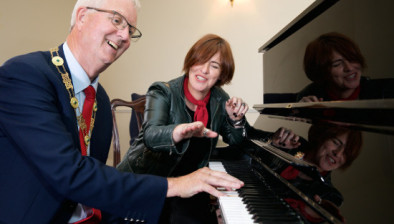In-house lawyers ‘on the fence’ on Unified Patent Court
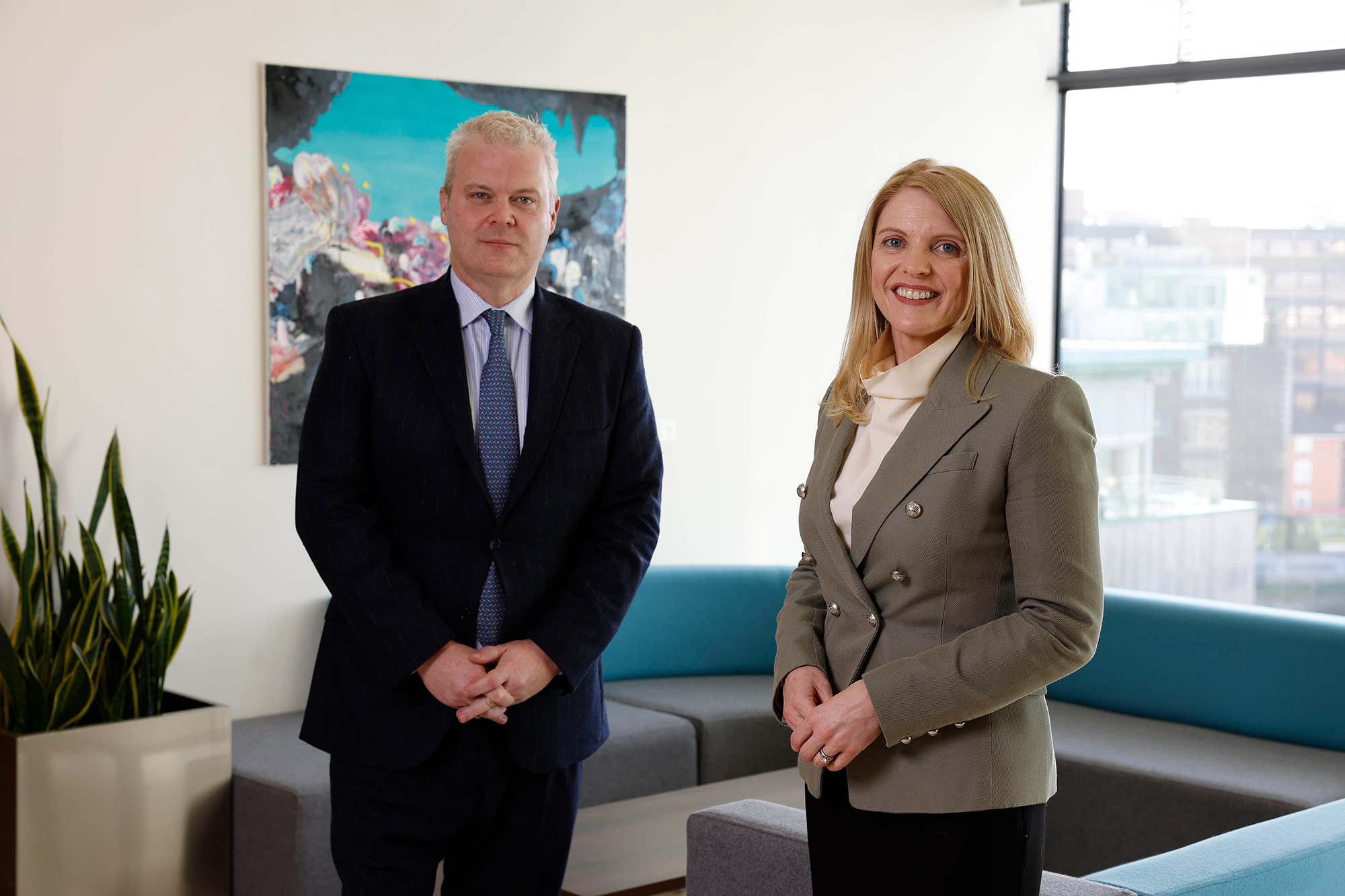
Pictured (left–right): Gerard Kelly and Hazel McDwyer.
Most in-house lawyers have yet to form an opinion for or against Ireland’s participation in the new Unified Patent Court (UPC), a survey by Mason Hayes & Curran suggests.
The business law firm surveyed 240 lawyers from various sectors, finding that two-thirds (66 per cent) had not decided how to vote in an upcoming referendum on the issue.
The referendum was originally set to take place alongside the European and local elections next month, but was indefinitely postponed in the aftermath of the government’s defeats in the family and care referendums.
Gerard Kelly, partner and head of intellectual property law at Mason Hayes & Curran, said: “Our findings suggest that the decision to defer the referendum was the right move. With two-thirds of in-house lawyers still on the fence, it’s clear there is a pressing need for more robust discussion on the pros and cons of joining the UPC.
“Before Ireland is asked to vote on such a significant legal reform, it is crucial that the electorate is aware of the implications for our national legal system and for businesses operating within it. Engaging in this dialogue is essential to ensure that all stakeholders have a clear understanding of the potential impacts and benefits.”
The survey also found that nine out of ten businesses (90 per cent) are not prepared (31 per cent) or only ‘somewhat prepared’ (59 per cent) to handle IP challenges related to artificial intelligence (AI).
Mr Kelly said: “The integration of AI into business processes is inevitable and brings with it a number of IP challenges. For example, last year the US District Court determined that an AI-generated artwork could not be protected by copyright, because it was not made by a human. This is consistent with findings in respect of inventions made solely by AI.
“Given our legislative requirements it is unlikely that copyright or patent protection will be granted to works or inventions generated solely by AI in Ireland.
“From a client perspective, we might start to see more disputes in the European courts in respect of AI-generated works and the outputs used from AI models so some care will be needed on how businesses embrace that change.”
This emerging legal uncertainty around AI and copyright aligns with broader enforcement challenges highlighted by the survey.
When asked about the type of IP protection hardest to enforce, a third (32 per cent) pointed to copyright protection as the most challenging, followed closely by trademark (26 per cent) and patent protection (22 per cent). Trade secret protection was also noted as difficult by 20 per cent of the surveyed lawyers.
Hazel McDwyer, intellectual property law partner at Mason Hayes & Curran, said: “The complexity of enforcing copyright protection is a growing concern for many of our clients. As content becomes increasingly digital, traditional enforcement mechanisms struggle to keep pace and legislation continues to play catch up.
“With our clients constantly developing cutting-edge technology, copyright can be one of their key IP rights. We work with clients to ensure that they firstly own the copyright in their content and technology and are then well placed to enforce through a number of mechanisms.”
The survey also highlighted the key challenges faced by companies in managing intellectual property. The biggest proportion (44 per cent) of respondents identified keeping up with legislative changes as their primary challenge, followed by concerns including protection against infringement (25 per cent), cost management (18 per cent), and international enforcement (13 per cent).
Ms McDwyer said: “The challenge of keeping pace with legislative change is a common theme we are hearing from clients across all of the firm’s key sectors.
“The rapid evolution of some technologies has led to a range of new IP-related legislation. It is critical for businesses to ensure they are informed and well-advised in order to protect their intellectual property and maintain their competitive edge.
“This is particularly the case with the European elections taking place in June, so we can expect further changes in legislative focus in the coming year.”







